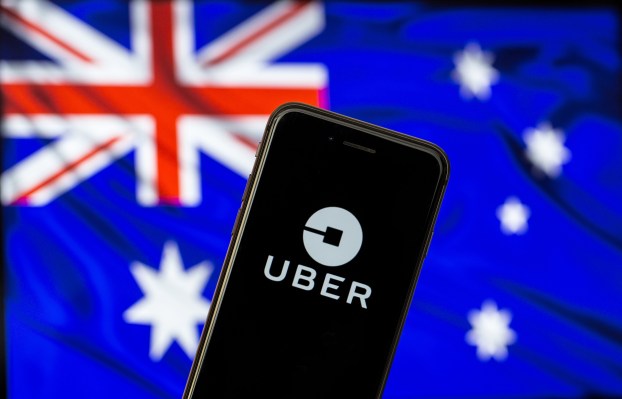Uber is facing Australian class action suit alleging ‘unlawful conduct’ – TechCrunch - 5 minutes read

As it gears up to go public Uber is facing legacy baggage down under: A class action lawsuit has been filed in Australia on behalf of around 6,000 taxi and hire car drivers and license owners, Reuters reported Friday.
The suit was filed Friday at the Victoria Supreme Court by personal injury and compensation law firm, Maurice Blackburn. It’s seeking compensation on behalf of thousands of taxi and hire car drivers and operators who believe they lost income or saw a fall in the value of their licence as a result of what it dubs “Uber’s unlawful conduct”.
The firm is still registering additional participants online — specifically those who were licensed to operate in four states, Victoria, Western Australian, New South Wales and Queensland, between a selection of dates spanning 2014 to 2017.
The argument behind the case is that Uber started operating illegally in the four states in 2014, by offering its UberX service which used vehicles and drivers without “the proper licences, accreditations and authorizations”, as it puts it — thereby leading to a drop in income and licence value for the plaintiffs in the class action.
State laws were subsequently changed to put ride-hailing on a lawful footing so the case is focused on Uber’s past business conduct, with Maurice Blackburn alleging it operated unlawfully in each of the states for a period of time — hence the varying dates for registering participants.
In a press release the firm writes that the case has been about 18 months in the making, noting too that the ‘no win, no fee’ class action is being underwritten by “one of the world’s largest litigation funders, Harbour”.
“Make no mistake, this will be a landmark case regarding the alleged illegal operations of Uber in Australia and the devastating impact that has had on the lives of hard-working and law-abiding citizens here,” said Maurice Blackburn’s national head of class actions, Andrew Watson, in a statement.
“It is not acceptable for a business to place itself above the law and operate illegally to the disadvantage of others. We’ve got a strong case, a strong team and substantial support from thousands of drivers, operators and licence owners nationwide,” he added.
The firm takes the view it has a better chance of winning compensation for plaintiffs by suing Uber, rather than the government for failing to enforce relevant regulations — pointing, for example, to Uber’s use of the controversial ‘Greyball’ software, which it describes as a “devious program”.
In 2017 the New York Times reported that Uber was using the software to identify members of code enforcement authorities or city officials trying to gather data about it offering service in areas where it’s prohibited and block their access to prevent their ability to enforce local rules.
“Uber sells the idea that it does things differently, but in reality and as we allege, this has meant operating unlawfully, using devious programs like ‘Greyball’. All of this caused extensive loss and damage to law-abiding taxi and hire car drivers, operators and licence holders across the country,” said senior associate at Maurice Blackburn, Elizabeth O’Shea, in another supporting statement.
“Uber came in and exploited people by operating outside of regulations and it was Uber’s conduct that led to horrible losses being suffered by our group members. For those reasons, we are targeting the multi-billion dollar company Uber and its associated entities to provide redress to those affected.”
The firm’s PR also includes a statement from lead plaintiff, Nick Andrianakis, a taxi driver, operator and licence owner from Brunswick, Melbourne, describing the impact of “a life’s work being stripped away from you”.
We’ve reached out to Uber for comment on the class action suit.
In a statement given to Reuters the company says it has not yet been served with a class action claim and denies it operated illegally, telling the news agency: “Uber denies this allegation and, if a claim is served making it, the claim will be vigorously defended.”
The law firm told the news agency that the level of damages being sought could run into “hundreds of millions of dollars” — while emphasizing that any compensation would be determined as part of the case or via settlement negotiations.
While Uber’s statement to Reuters implies it has no intention of seeking a settlement to make this latest legacy legal headache go away, two months ago it did just that in the case of a separate US class-action focused on driver pay and benefits.
In that case Uber agreed to pay $20 million to settle a suit, brought six years ago, which had claimed Uber classified its drivers as contractors to avoid paying them a minimum wage and providing benefits.
Though $20M is considerably less than Uber might have been on the hook for had an appeals court not overturned an earlier decision to grant class-action status to hundreds of thousands of drivers in California and Massachusetts — ruling instead that its arbitration agreements were valid and enforceable.
That decision reduced the number of drivers in the suit to around 13,600.